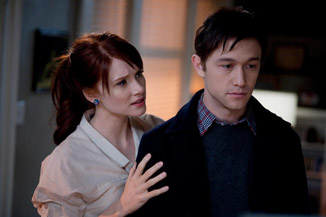|
|
BOP Interview: Seth Rogen and Will Reiser Part IBy Ryan MazieSeptember 28, 2011
SR: It was me, Will, one of the other producers, and my girlfriend, all living in my parents’ house. Yeah, we watched the cut at their dining room table, and I remember we were all really excited that it worked even better than we even hoped. WR: Yeah, that’s when we got really excited. A lot of people would contend that a comedy about cancer is off limits, but you guys proved that you can do it in a sensitive way. So is there anything you guys wouldn’t approach comically? SR: I would never definitively say there is anything off limits. I think if we had not personally experienced this, it would have been really hard to make this movie, if not impossible, probably. WR: But we wouldn’t have known what was acceptable. Because we lived it and were able to talk about it and make fun of it … we aren’t making fun of cancer or illness, we are making fun of how people deal with it. We are making fun of the dysfunction it creates. So it is more about people. SR: Any idea can be tackled comically, I think. WR: Like the Patrick Swayze joke. We aren’t making fun of him; it is just a joke about [Seth’s] character not knowing that Patrick Swayze is dead. SR: Exactly, it is all about how you approach it. If it feels mean, then yeah, there is a lot of shit that you can’t make comedies about. I always think to Dr. Strangelove, which out of context is not that impressive of a movie. But at that time, people thought that they were going to get fucking nuked at any second, it was probably a pretty intense thing to make a movie about! It would literally be the equivalent of making a terrorist comedy today, which is not something I would ever do, but it’s something they have done – I heard Four Lions is very good. So I think it is all how you approach it and that any subject is [able to be tackled] if you approach it right.
|

|
|
|

|
Friday, November 1, 2024
© 2024 Box Office Prophets, a division of One Of Us, Inc.


